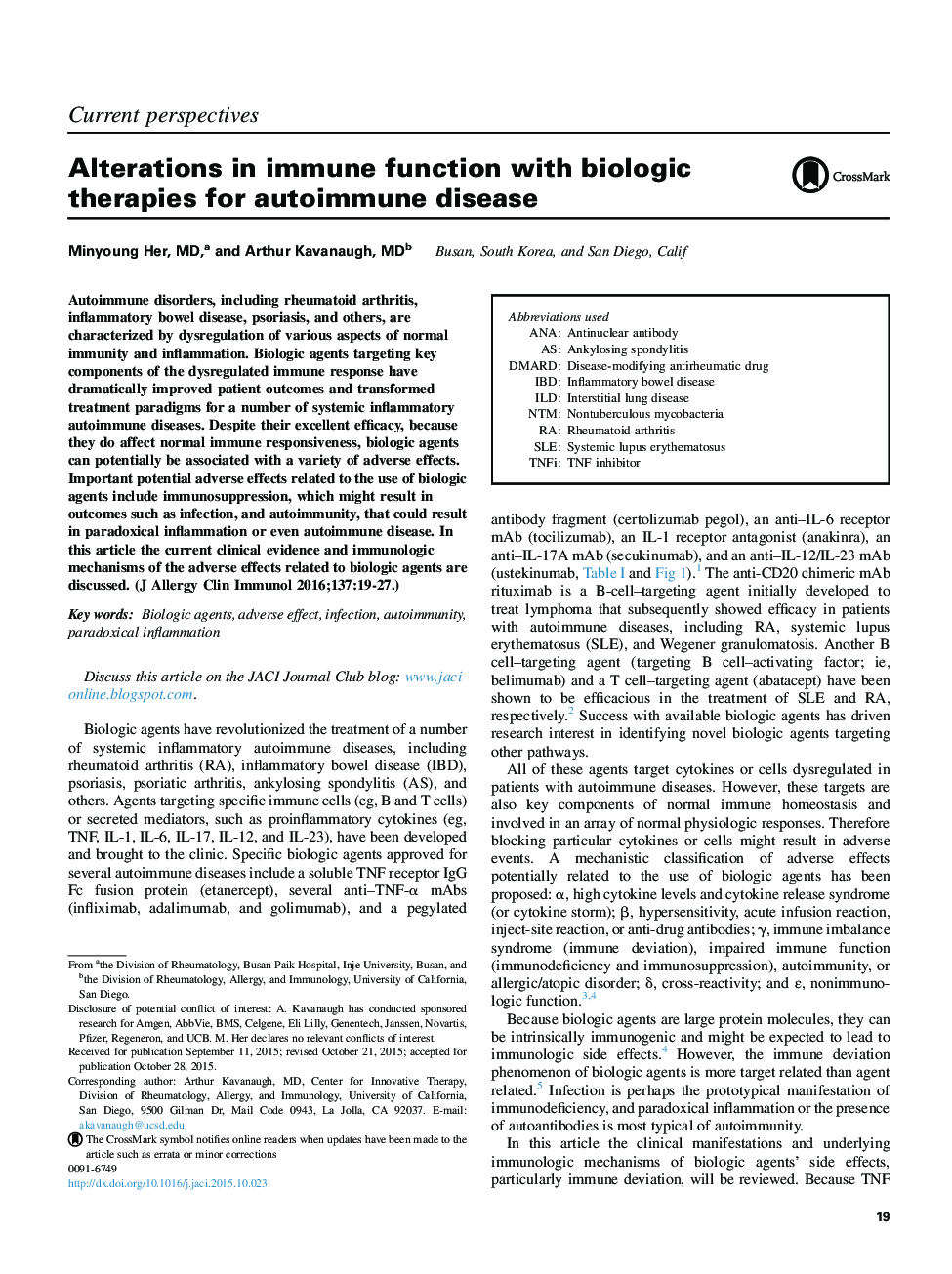| Article ID | Journal | Published Year | Pages | File Type |
|---|---|---|---|---|
| 6062818 | Journal of Allergy and Clinical Immunology | 2016 | 9 Pages |
Abstract
Autoimmune disorders, including rheumatoid arthritis, inflammatory bowel disease, psoriasis, and others, are characterized by dysregulation of various aspects of normal immunity and inflammation. Biologic agents targeting key components of the dysregulated immune response have dramatically improved patient outcomes and transformed treatment paradigms for a number of systemic inflammatory autoimmune diseases. Despite their excellent efficacy, because they do affect normal immune responsiveness, biologic agents can potentially be associated with a variety of adverse effects. Important potential adverse effects related to the use of biologic agents include immunosuppression, which might result in outcomes such as infection, and autoimmunity, that could result in paradoxical inflammation or even autoimmune disease. In this article the current clinical evidence and immunologic mechanisms of the adverse effects related to biologic agents are discussed.
Keywords
Related Topics
Life Sciences
Immunology and Microbiology
Immunology
Authors
Minyoung MD, Arthur MD,
